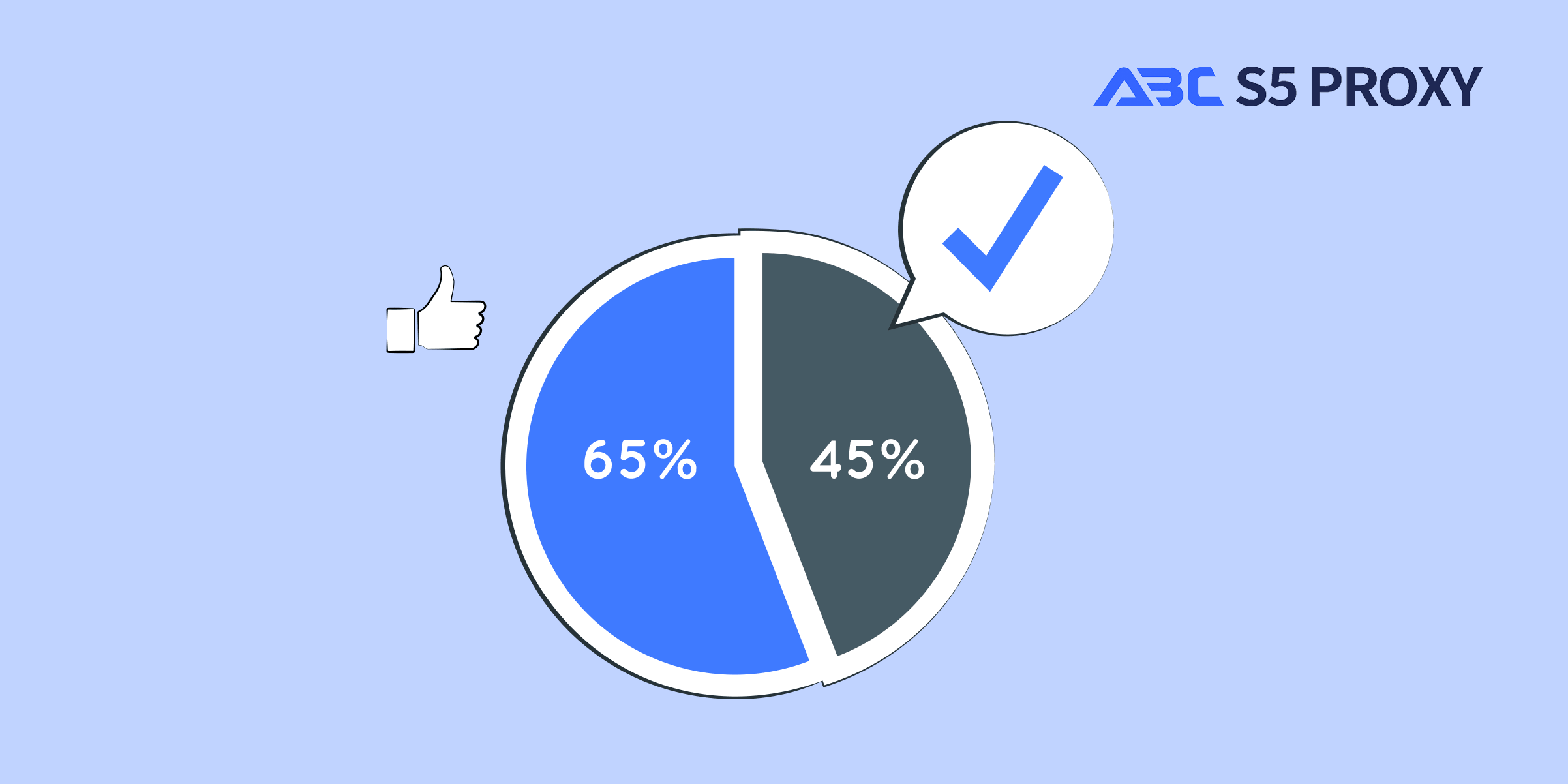Residential Proxies
Allowlisted 200M+ IPs from real ISP. Managed/obtained proxies via dashboard.

Proxies
Residential Proxies
Allowlisted 200M+ IPs from real ISP. Managed/obtained proxies via dashboard.
Residential (Socks5) Proxies
Over 200 million real IPs in 190+ locations,
Unlimited Residential Proxies
Use stable, fast, and furious 700K+ datacenter IPs worldwide.
Static Residential proxies
Long-lasting dedicated proxy, non-rotating residential proxy
Dedicated Datacenter Proxies
Use stable, fast, and furious 700K+ datacenter IPs worldwide.

Web Unblocker
View content as a real user with the help of ABC proxy's dynamic fingerprinting technology.
Proxies
API
Proxy list is generated through an API link and applied to compatible programs after whitelist IP authorization
User+Pass Auth
Create credential freely and use rotating proxies on any device or software without allowlisting IP
Proxy Manager
Manage all proxies using APM interface

Proxies
Residential Proxies
Allowlisted 200M+ IPs from real ISP. Managed/obtained proxies via dashboard.
Starts from
$0.77/ GB
Residential (Socks5) Proxies
Over 200 million real IPs in 190+ locations,
Starts from
$0.045/ IP
Unlimited Residential Proxies
Use stable, fast, and furious 700K+ datacenter IPs worldwide.
Starts from
$79/ Day
Rotating ISP Proxies
ABCProxy's Rotating ISP Proxies guarantee long session time.
Starts from
$0.77/ GB
Static Residential proxies
Long-lasting dedicated proxy, non-rotating residential proxy
Starts from
$5/MONTH
Dedicated Datacenter Proxies
Use stable, fast, and furious 700K+ datacenter IPs worldwide.
Starts from
$4.5/MONTH
Knowledge Base
English
繁體中文
Русский
Indonesia
Português
Español
بالعربية

Residential Proxies vs Datacenter Proxies: Which One Should You Choose?
In the world of online browsing and data scraping, proxies play a crucial role in ensuring anonymity, security, and access to restricted content. Two popular types of proxies that are often compared are residential proxies and datacenter proxies. Each type has its own set of advantages and disadvantages, and choosing the right one for your specific needs can make a significant difference in the success of your online activities. In this blog post, we will delve into the differences between residential proxies and datacenter proxies, their unique features, and which one may be the best fit for you.
Residential proxies are IP addresses provided by Internet Service Providers (ISPs) to homeowners. These proxies route your internet traffic through real residential addresses, making it appear as if a real user is accessing the web. This type of proxy is known for its high level of anonymity and legitimacy, as the IP addresses are associated with real physical locations.
Residential proxies are particularly useful for tasks that require high authenticity, such as web scraping, market research, and social media management. Since they are less likely to be detected as proxies, residential proxies are often more reliable for accessing geo-restricted content and avoiding IP bans.
Datacenter proxies, on the other hand, are not associated with ISPs or physical locations. Instead, they are created in data centers through servers. These proxies offer fast and stable connections, making them ideal for tasks that require speed and efficiency, such as sneaker botting or ad verification.
While datacenter proxies are cost-effective and easy to set up, they may be more easily detectable as proxies compared to residential proxies. Websites and servers can often blacklist datacenter IP addresses, leading to restricted access and potential bans.
1. **Anonymity**: Residential proxies provide a higher level of anonymity since they use real residential IP addresses, while datacenter proxies are more likely to be detected as proxies.
2. **Reliability**: Residential proxies are generally more reliable for accessing geo-restricted content and avoiding bans, while datacenter proxies offer faster and more stable connections.
3. **Cost**: Datacenter proxies are usually more cost-effective than residential proxies, making them a preferred choice for users with budget constraints.
When deciding between residential proxies and datacenter proxies, it's essential to consider your specific requirements and priorities. If you prioritize anonymity, legitimacy, and reliability, residential proxies may be the better option for you. On the other hand, if speed, efficiency, and cost-effectiveness are your main concerns, datacenter proxies could be the more suitable choice.
It's also worth noting that some tasks may benefit from using a combination of both residential and datacenter proxies. By leveraging the strengths of each type of proxy, you can optimize your online activities and achieve better results.
In conclusion, the choice between residential proxies and datacenter proxies ultimately depends on your unique needs and preferences. Both types of proxies offer distinct advantages and drawbacks, so it's essential to weigh the pros and cons carefully before making a decision.
Whether you choose residential proxies for their authenticity and reliability or datacenter proxies for their speed and cost-effectiveness, selecting the right proxy type can significantly impact the success of your online endeavors. By understanding the differences between residential proxies and datacenter proxies and evaluating your priorities, you can make an informed decision that best serves your objectives.
Featured Posts
Popular Products
Residential Proxies
Allowlisted 200M+ IPs from real ISP. Managed/obtained proxies via dashboard.
Residential (Socks5) Proxies
Over 200 million real IPs in 190+ locations,
Unlimited Residential Proxies
Use stable, fast, and furious 700K+ datacenter IPs worldwide.
Rotating ISP Proxies
ABCProxy's Rotating ISP Proxies guarantee long session time.
Residential (Socks5) Proxies
Long-lasting dedicated proxy, non-rotating residential proxy
Dedicated Datacenter Proxies
Use stable, fast, and furious 700K+ datacenter IPs worldwide.
Web Unblocker
View content as a real user with the help of ABC proxy's dynamic fingerprinting technology.
Related articles

How does the ChatGPT RAG example improve information processing capabilities
Analyze the actual application scenarios of ChatGPT combined with Retrieval Augmented Generation (RAG) technology, explore its value in knowledge integration and data acquisition, and understand how abcproxy provides underlying support for the RAG system.